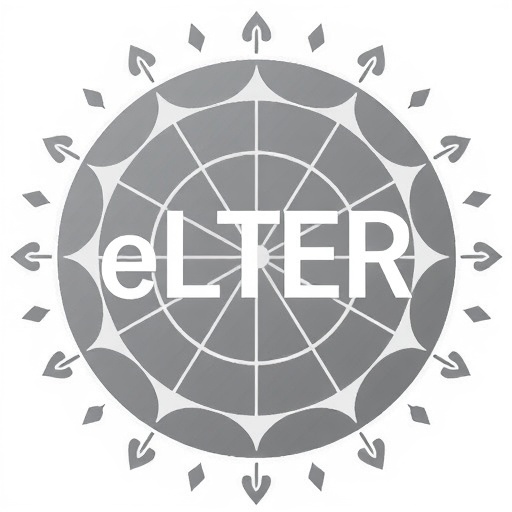In a significant stride towards enhancing the infrastructure for long-term ecological and socio-environmental research, eLTER has finalized a vital procedural step in its ambition to establish itself as a European Research Infrastructure Consortium (ERIC). On July 24th, 2025, eLTER formally submitted its Step-1 Application to the European Commission, marking a pivotal moment in an extensive and meticulously coordinated process. This submission was made possible through the instrumental facilitation of the German Federal Ministry of Research, Technology and Space (BMFTR) alongside the Permanent Representation of Germany to the European Union in Brussels, underscoring the collaborative spirit and multinational support fuelling this project.
The eLTER initiative, an ambitious integrative platform merging ecological and socio-economic data, responds directly to the intricate and dynamic challenges posed by the interactions between human societies and natural ecosystems over extended periods. By synthesizing data streams across various disciplines and geographic scales, eLTER aims to advance our scientific understanding of how environmental changes impact biodiversity, ecosystem services, and human well-being. This holistic approach is critical for developing robust, evidence-based policies capable of addressing global environmental challenges with unprecedented precision.
Technically, the eLTER infrastructure is designed to facilitate comprehensive longitudinal studies by providing standardized methodologies, data harmonization protocols, and cutting-edge monitoring technologies dispersed across a network of strategically selected observatories. This network will enable researchers not only to detect gradual ecosystem shifts but also to explore their underlying mechanisms, causal pathways, and their feedback loops with human social systems. By successfully achieving ERIC status, eLTER will secure a stable and legally recognized framework that guarantees sustainability, standardized governance, and equitable access for all contributing nations.
Currently, the European Commission is undertaking a thorough review of eLTER’s Step-1 Application, which includes detailed assessments of scientific merit, operational feasibility, financial models, and governance structures. This evaluative phase could instigate requests for further clarifications or modifications, typical of pioneering infrastructure projects of such magnitude. Responding promptly and accurately to any such feedback will be crucial to progressing to the Step-2 Application stage, whereby the final establishment request, endorsed by all prospective member states and observers, is formally lodged.
The anticipated timeline sets the submission of the Step-2 Application in early 2026, pending satisfactory revisions and consensus among stakeholders. The European Commission’s ultimate decision regarding the eLTER ERIC’s establishment will be formally published in the Official Journal of the European Union, thereby instating an official status that enables eLTER to operate as a pan-European infrastructural body dedicated to ecological and social system research.
The realization of eLTER as an ERIC represents more than administrative success; it signifies a scientific leap derived from years of interdisciplinary collaboration, advanced technological innovation, and shared commitment to addressing complex environmental challenges within Europe and beyond. With this infrastructure, researchers will gain unprecedented capabilities for cross-sectoral analysis, data integration, and stakeholder engagement, facilitating actionable insights into ecosystem resilience, climate adaptation, and sustainable resource management.
Acknowledgment is due to the German BMFTR for its pivotal role in facilitating the submission process, whose support and strategic oversight have been invaluable in navigating the multifaceted bureaucratic landscape. Likewise, the Interim Council members of eLTER have provided engaged and thoughtful leadership, ensuring that the application process rigorously meets scientific, technical, and operational requirements. Their collective efforts are mirrored by a wide network of supporters spanning current and prospective member countries, which collectively uphold the vision of a unified research infrastructure.
As anticipation builds, the eLTER community eagerly awaits the Commission’s feedback which will not only shape the final submission but also influence the trajectory of environmental and social sciences infrastructure for years to come. This step signals a renewed promise toward fostering open science, enhanced data interoperability, and collaborative governance models that transcend national borders and discipline-specific silos.
The significance of eLTER’s progress extends beyond the scientific domain as well; it serves as a blueprint of international collaboration and strategic investment in knowledge infrastructures that are crucial for addressing planetary-scale environmental crises. eLTER’s integrative framework is positioned to bridge gaps between ecological data and societal decision-making processes, thus empowering policymakers with reliable projections and adaptive strategies grounded in robust empirical evidence.
In summary, the successful submission of the Step-1 Application underscores eLTER’s readiness and commitment to establish itself as Europe’s backbone for integrated long-term ecosystem research. The anticipated formal recognition as an ERIC will enable eLTER to provide sustained support for monitoring, analyzing, and forecasting environmental changes while fostering capacity building in scientific communities. As this transformative endeavor progresses, it promises to contribute significantly to the science-policy interface, ensuring that human-nature relationships are understood and managed with the foresight necessary for sustainability in an era of rapid global change.
Subject of Research: Long-term ecological and socio-environmental research infrastructure development
Article Title: eLTER Advances Toward European Research Infrastructure Consortium Status with Key Milestone Submission
News Publication Date: July 24, 2025
Web References:
- Official Journal of the European Union: https://eur-lex.europa.eu/oj/direct-access.html
Image Credits: eLTER
Keywords: Science policy, scientific community




